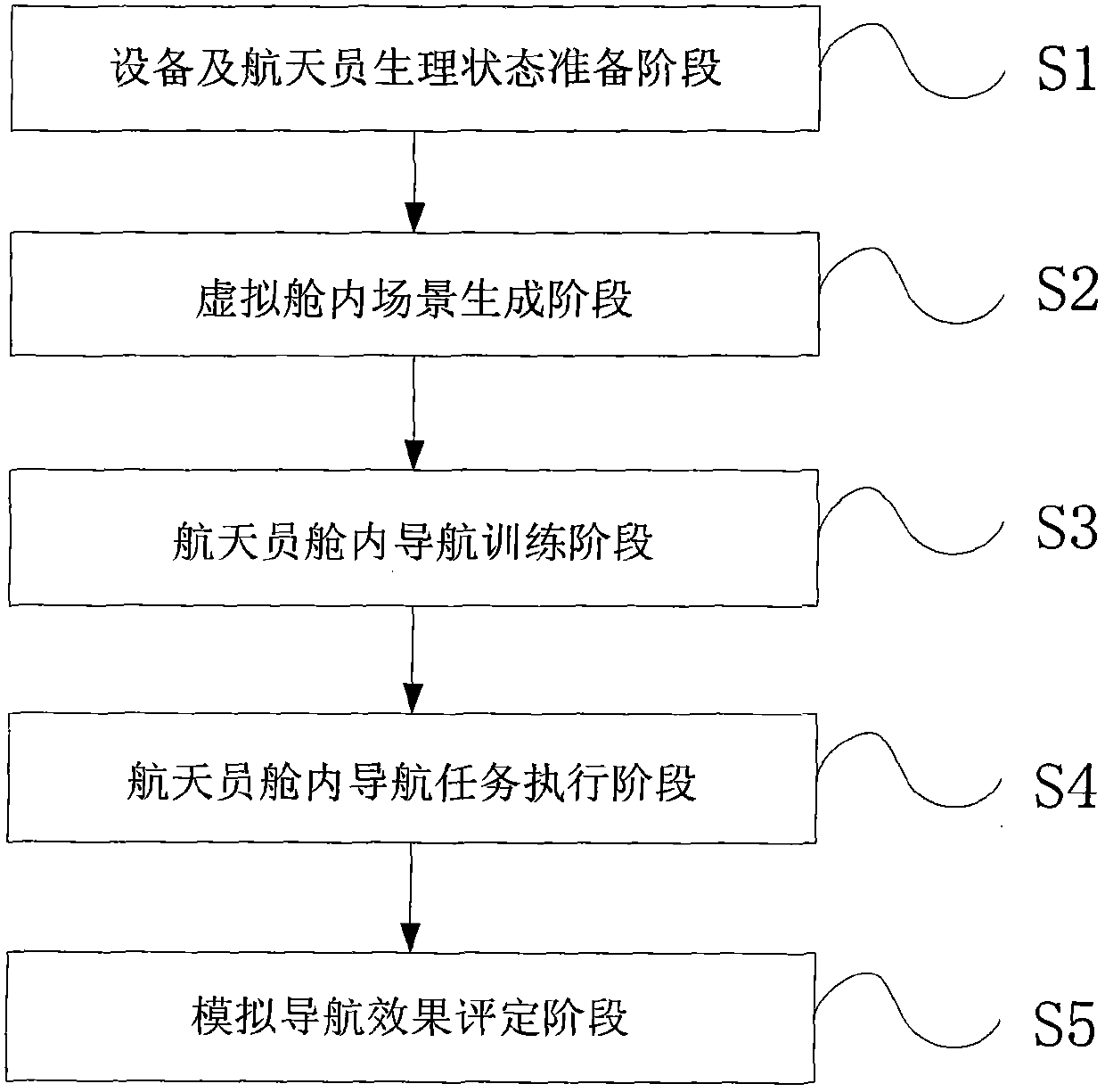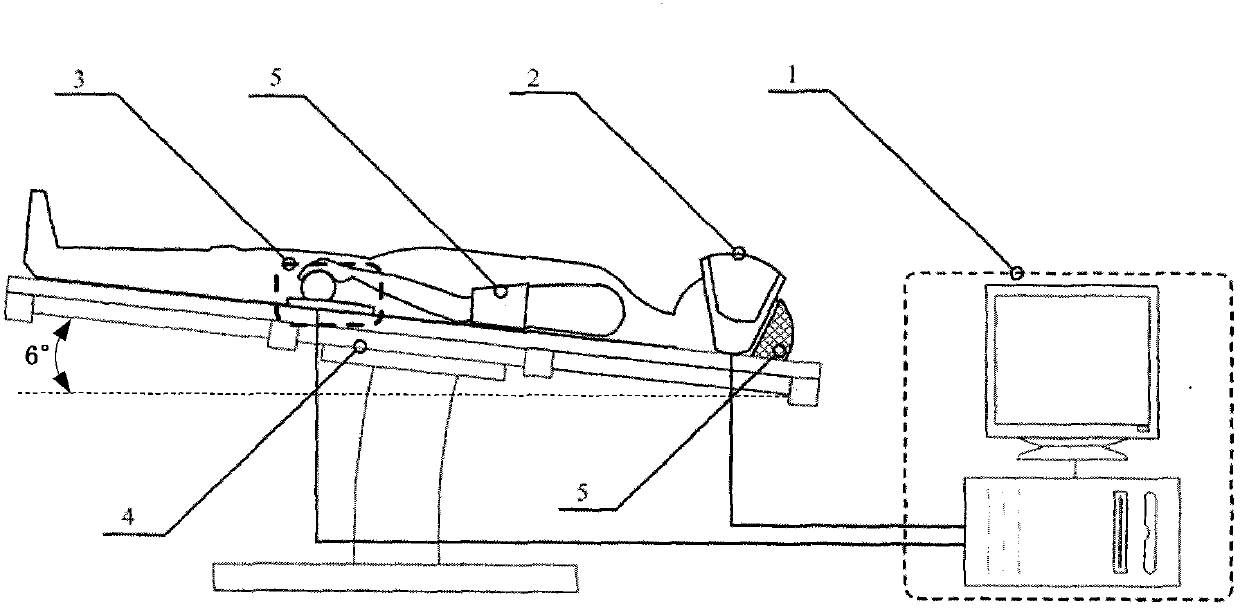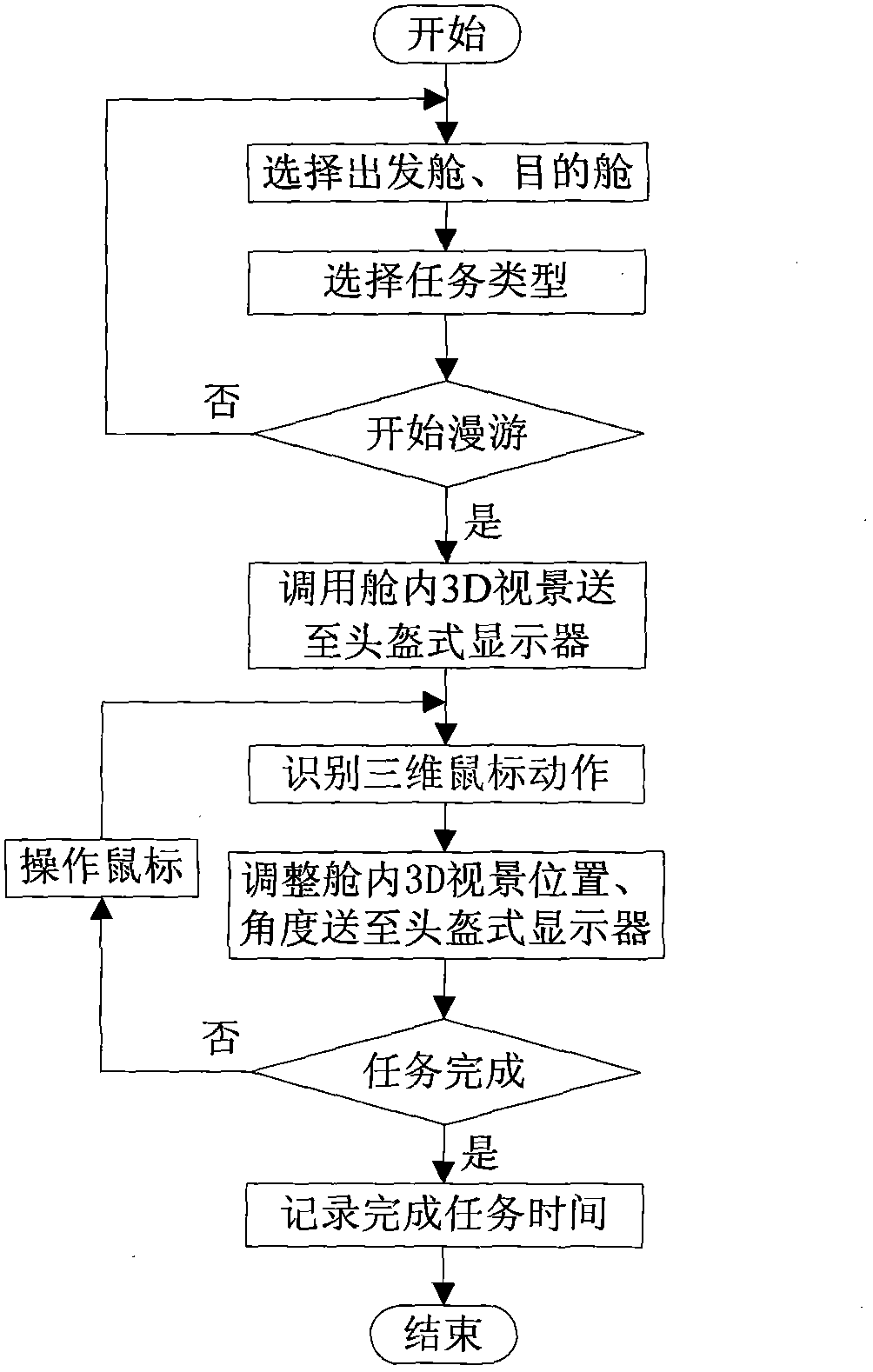In-spaceport-bin navigation analogy method and system based on head-down bed resting
A space station, low-level technology, applied in the field of effective simulation navigation, can solve problems such as unrealistic, sustainable time limit, astronaut navigation obstacles, etc., and achieve the effect of realistic scenes, low cost, and simple methods
- Summary
- Abstract
- Description
- Claims
- Application Information
AI Technical Summary
Problems solved by technology
Method used
Image
Examples
Embodiment Construction
[0033] Through the specific implementation methods of the present invention given below, the present invention can be understood more clearly, but the present invention is not limited thereto.
[0034] The flow chart of the virtual space station navigation simulation method in the head-down bed is as follows: figure 1 As shown, the navigation simulation is completed in five steps:
[0035] Step S1: In the preparation stage of the equipment and the physiological state of the astronauts, the astronauts are placed in a -6° head-down position and wear a wide-view helmet-mounted display for a period of time to make the physiological effects of the astronauts' body fluid head transfer and the physiological effects in the weightless state Equivalent, forming a physiological effect to simulate the state of weightlessness;
[0036] Step S2: In the virtual cabin scene generation stage, start the virtual multi-cabin space station simulation program in the graphics workstation, and displ...
PUM
 Login to View More
Login to View More Abstract
Description
Claims
Application Information
 Login to View More
Login to View More - R&D Engineer
- R&D Manager
- IP Professional
- Industry Leading Data Capabilities
- Powerful AI technology
- Patent DNA Extraction
Browse by: Latest US Patents, China's latest patents, Technical Efficacy Thesaurus, Application Domain, Technology Topic, Popular Technical Reports.
© 2024 PatSnap. All rights reserved.Legal|Privacy policy|Modern Slavery Act Transparency Statement|Sitemap|About US| Contact US: help@patsnap.com










